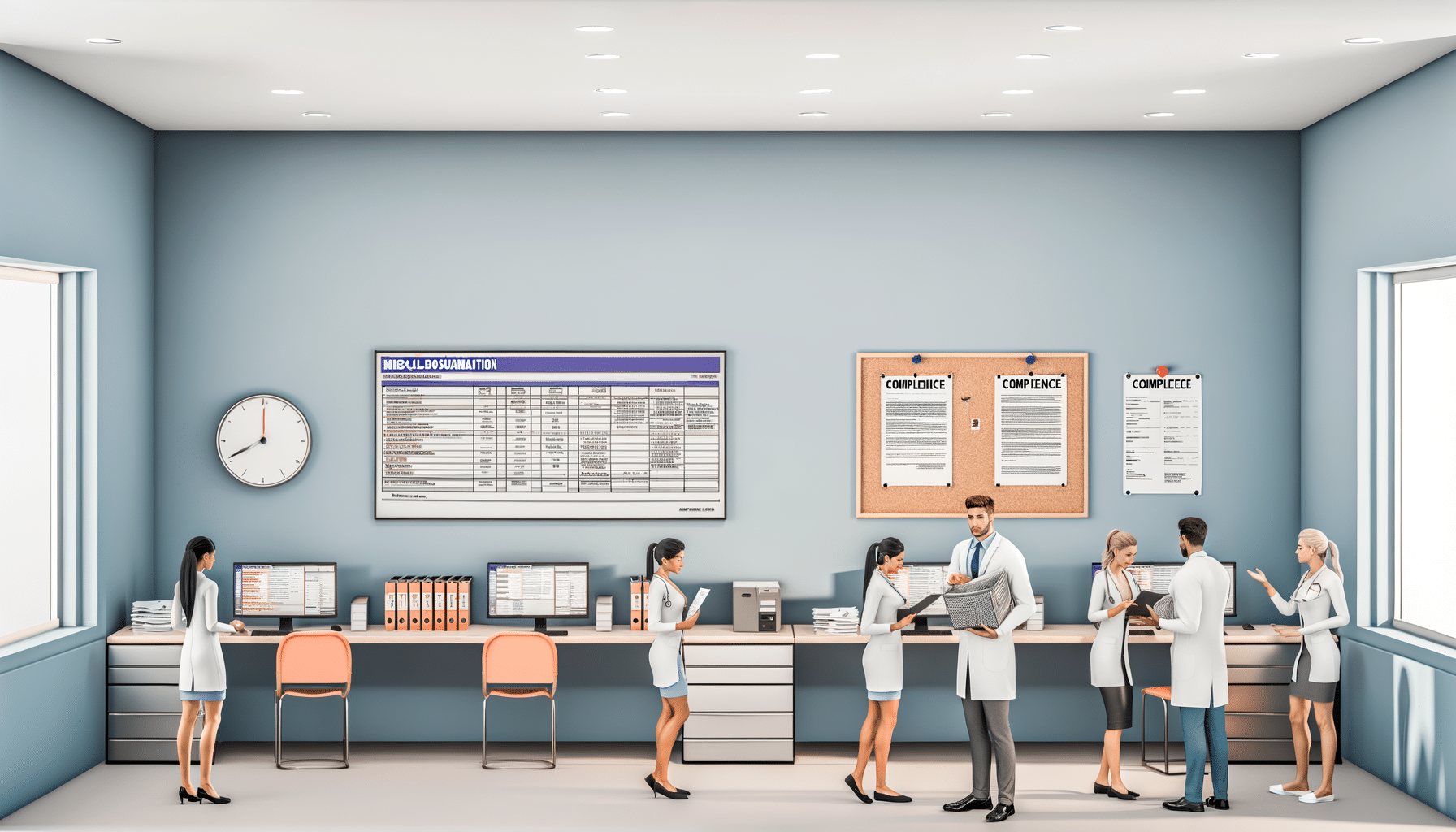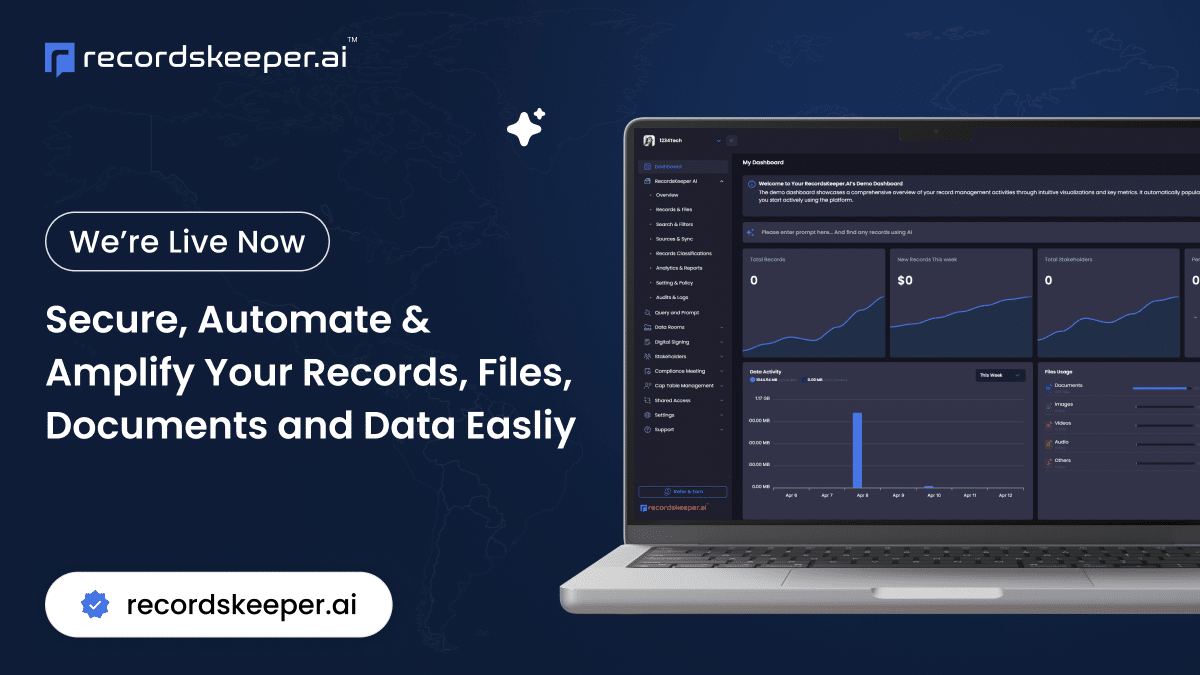In the realm of healthcare, where precision and compliance are not just aspirations but necessities, proper medical documentation forms the backbone of efficient and safe patient care. Yet, as those of us in the field well know, managing these records is no small feat. Healthcare providers must navigate a labyrinth of data, compliance mandates, and technological advancements. I’ve been at the forefront of technological innovation for several years, and with RECORDSKEEPER.AI, I’ve witnessed firsthand how AI and blockchain technology revolutionize these processes.
Why Accurate Medical Documentation Matters
The significance of healthcare records cannot be overstated. Accurate medical documentation ensures three critical outcomes: legal compliance, patient safety, and operational efficiency.
- Legal Compliance: Medical practitioners must adhere to a variety of legal mandates, from HIPAA in the United States to GDPR in Europe. Proper documentation helps avoid legal pitfalls and ensures adherence to these stringent regulations.
- Patient Safety: Accurate records enable doctors and healthcare providers to deliver the best possible care, preventing errors that could have severe consequences for patient health.
- Operational Efficiency: Streamlined documentation practices facilitate smoother healthcare operations, allowing providers to focus on patient care rather than paperwork.
Given these imperatives, let’s explore best practices for managing healthcare records efficiently, accurately, and in compliance with legal standards.
Best Practices in Medical Documentation
Over years of experience in tech-driven record management solutions, I have identified several best practices that every healthcare provider should adopt:
1. Implement Standardized Documentation Protocols
Consistency is crucial in medical documentation. Medical practitioners should follow standardized templates and protocols to document patient interactions accurately. Consistency ensures completeness and clarity, reducing errors and misunderstandings. In using standardized methods, crucial information is not omitted, thereby facilitating seamless communication across departments.
2. Leverage Technology for Accuracy and Compliance
Modern solutions like RECORDSKEEPER.AI leverage AI and blockchain technology to automate and secure documentation processes. AI-powered categorization ensures that records are systematically organized, making retrieval straightforward. Blockchain, known for its immutable properties, guarantees the integrity of records, serving as a powerful tool for maintaining trust in data accuracy.
3. Regularly Update and Audit Records
Healthcare providers must ensure records are regularly updated to reflect patients’ current conditions. Scheduled audits help verify the accuracy and relevance of documentation, identifying any inconsistencies or lapses in compliance.
4. Foster a Culture of Responsibility and Precision
It’s not only about the tools but also the mindset. Encouraging a culture where precision and responsibility are valued promotes diligence in maintaining accurate documentation. Staff should regularly be trained and made aware of the significance their documentation has on legal, operational, and patient care aspects.
5. Ensure Secure and Compliant Access
Control who accesses sensitive healthcare records. Technologies providing secure data rooms with controlled access significantly enhance data security. Real-time activity tracking can prevent unauthorized access and quickly pinpoint issues if data breaches occur.
Future-Proofing Medical Documentation with Healthcare IT
The future lies in the fusion of healthcare IT and compliance needs. By embracing tech solutions, healthcare providers can transform documentation from a bottleneck into a strategic asset. RECORDSKEEPER.AI, for instance, has spearheaded innovations that help users adhere to critical standards like HIPAA, GDPR, and SOX while ensuring ease of use and operational efficiency.
Medical documentation is no longer just a compliance requirement; it’s central to service excellence. By adopting the best practices outlined above, coupled with technological advancements, healthcare institutions can look forward to delivering superior patient care and achieving regulatory milestones effortlessly.
Embracing these insights into medical documentation can redefine operational success and compliance assurance in the healthcare landscape. For more such innovations and insights into the evolving world of healthcare IT, stay tuned or reach out to discover how RECORDSKEEPER.AI can support your documentation needs.








